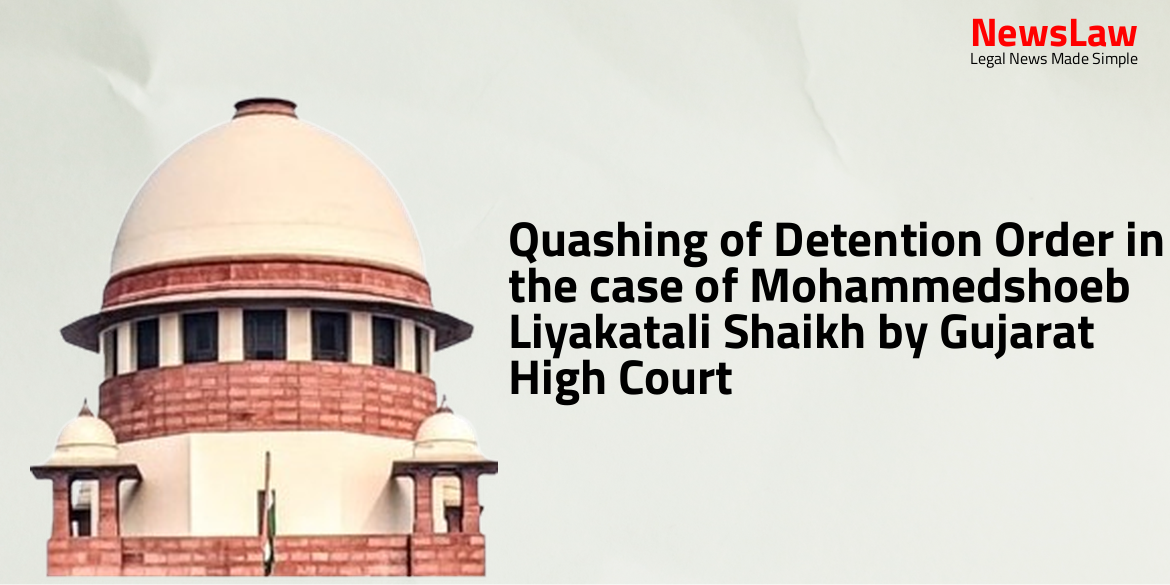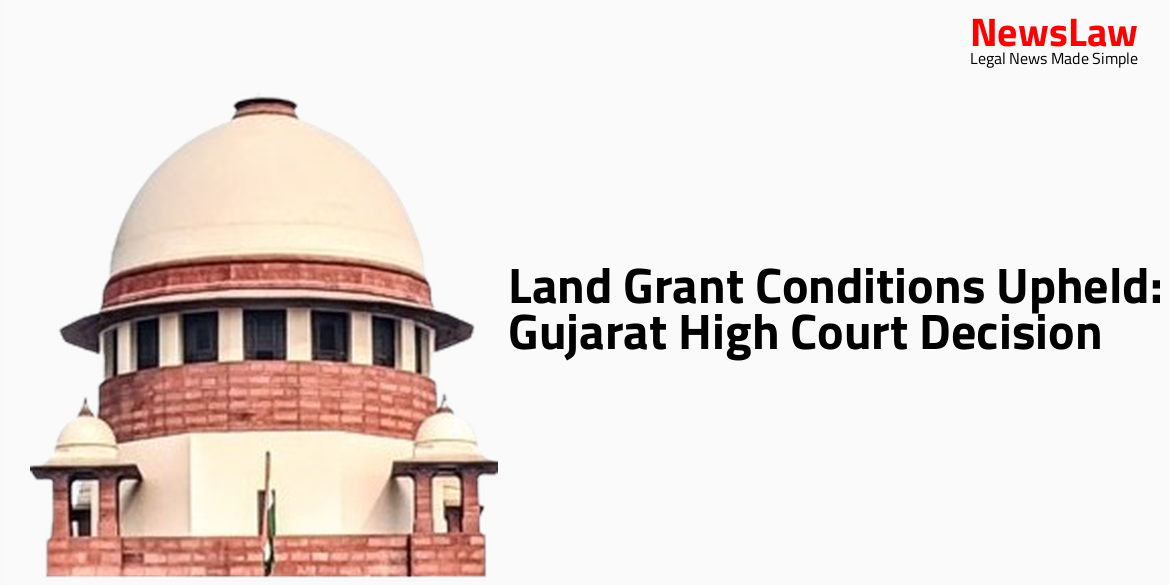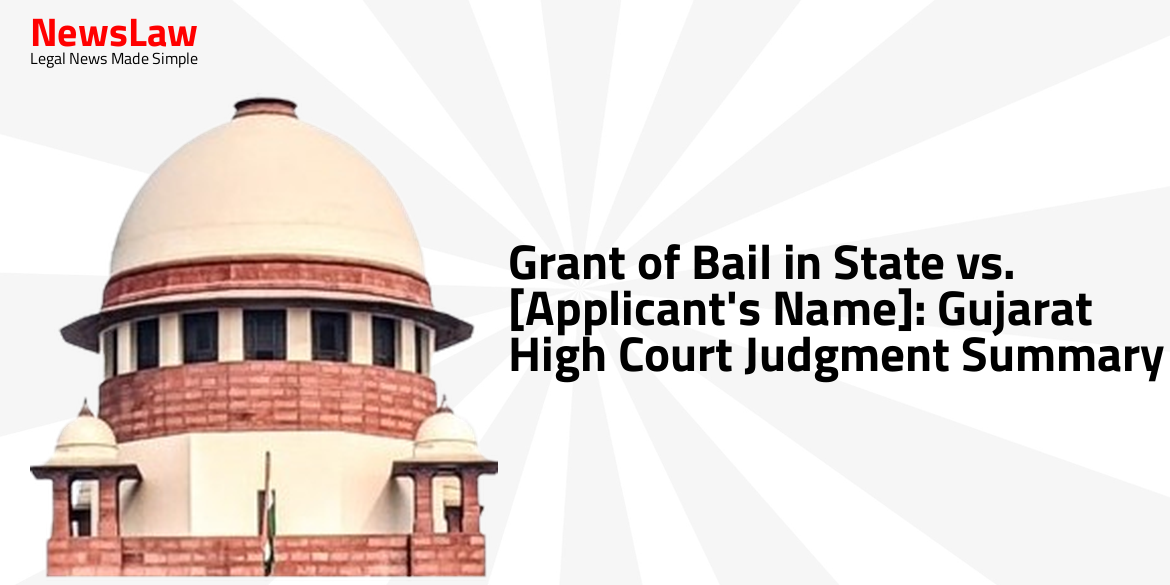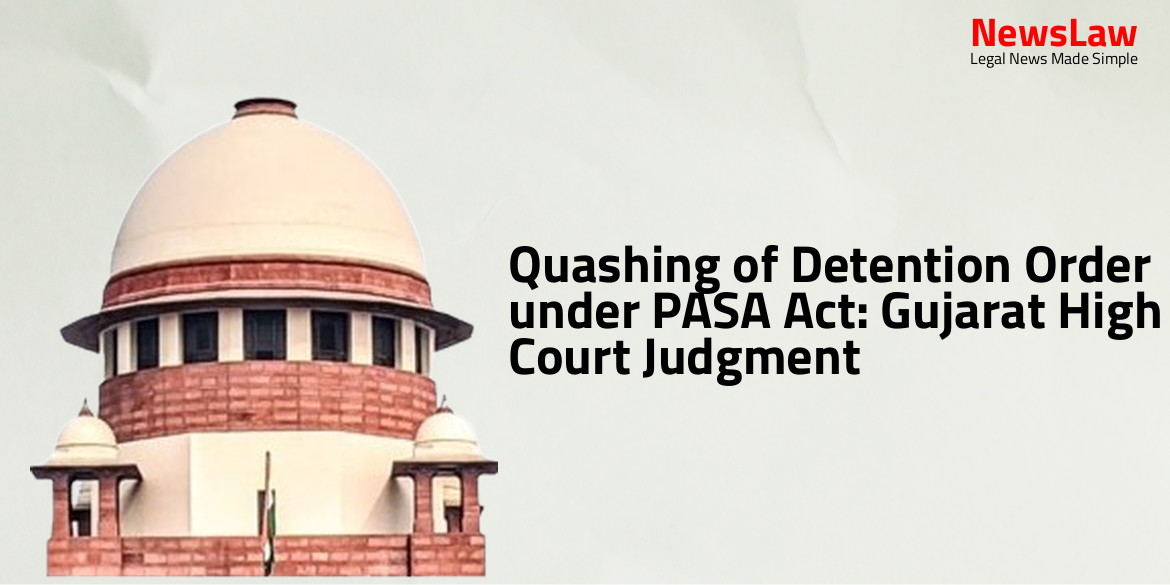In a recent landmark judgment, the Gujarat High Court has declared the detention order in the case of Mohammedshoeb Liyakatali Shaikh to be invalid. The Court has ruled that the detenue is to be released forthwith, as the order was found to be legally unsustainable. This decision sets a significant precedent in the interpretation of preventive detention laws. Stay tuned for more updates on this case. #LegalCase #DetentionOrder #GujaratHighCourt
Facts
- The background and circumstances (FAC) leading to the preventive detention of Mohammedshoeb Liyakatali Shaikh under the Gujarat Prevention of Anti- Social Activities Act, 1985.
- The specific reasons and evidence provided by the Police Commissioner, Ahmedabad, to justify the detention of Mohammedshoeb Liyakatali Shaikh as a ‘dangerous person’.
- The arguments put forth by Mohammedshoeb Liyakatali Shaikh challenging the legality and validity of the detention order.
- The evaluation of whether the detention order passed by the Police Commissioner, Ahmedabad, complies with the provisions of the Act of 1985 and the principles of natural justice.
- The decision and conclusion reached by the Court regarding the legality and validity of Mohammedshoeb Liyakatali Shaikh’s preventive detention under the Act of 1985.
Issue
- The issue at hand is whether the detention order passed by the Detaining Authority under the Act of 1985 is legally sustainable.
- It is being questioned whether the order executed on the applicant is valid.
- The key concern is whether the order of detention complies with the law and the Constitution.
- The central question is whether this case involves a substantial legal interpretation of the Constitution of India.
Arguments
- State Counsel argued that the detenue is a habitual offender with activities affecting the society.
- The Detaining Authority’s order aimed to prevent the detenue from acting in a manner prejudicial to public order in Ahmedabad.
- Detenue’s counsel claimed the detention grounds do not pertain to public order but are related to law and order.
- They argued that the alleged offenses do not impact public order as per the Act.
- The activities were deemed prejudicial only to law and order, not public order.
Analysis
- The detaining authority failed to establish that the petitioner’s activities as a bootlegger affect or are likely to affect the maintenance of public order
- Reference to five criminal cases against the petitioner under the IPC was made in the grounds of detention
- Granting of bail to the petitioner in all the mentioned criminal cases
- The authority wrongly concluded that the petitioner’s activities were prejudicial to public order based on the criminal cases
- The alleged offenses do not disrupt the even tempo of the community’s life and do not impact public order
- The detention order in the case of Piyush Kantilal Mehta Vs. Commissioner of Police, Ahmedabad was based on the registration of two prohibition offences.
- The Apex Court referenced the case of Pushkar Mukherjee Vs. State of Bengal, highlighting that mere disturbance of law and order is not sufficient for action under the Preventive Detention Act; it must affect public order to fall within the Act’s scope.
- Contravention of any law affects order, but for it to impact public order, it must affect the community or the public at large.
- There must be a distinction between serious and aggravated acts in determining if they affect public order.
- Ramaswami, J., speaking for the Court, emphasized that not every act of assault or injury to specific persons leads to public disorder; there must be a broader impact on the community or public at large.
- Quarrels or fights between two individuals, even if resulting in assault, may constitute disorder but not public disorder.
- The case of Pushkar Mukherjee v. State of West Bengal provides clear differentiation between ‘law and order’ and ‘public order’ for actions under preventive detention Act.
- The material on record is not sufficient to prove that the activities of the detenue have adversely affected public order.
- Subjective satisfaction of the detaining authority is not legal, valid, or in accordance with the law.
- The alleged offences and allegations do not create a feeling of insecurity, panic, or terror among the public, hence not affecting public order.
Decision
- The detenue is directed to be set at liberty forthwith, unless required in any other case.
- The Rule is made absolute and the detenue is to be released accordingly.
- Direct service is permitted for this order.
- The order dated 10.10.2023, passed by the respondent authority, is quashed.
Case Title: MOHAMMEDSHOEB LIYAKATALI SHAIKH THROUGH MOHAMMEDSADIK RAHEMUDDEEN ANSARI Vs. STATE OF GUJARAT
Case Number: R/SCR.A/6233/2024



